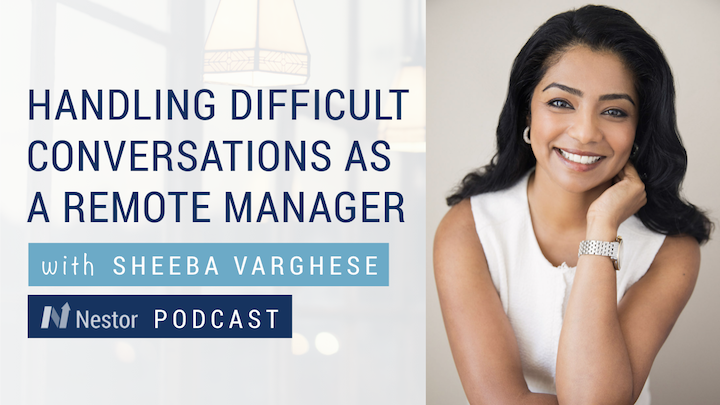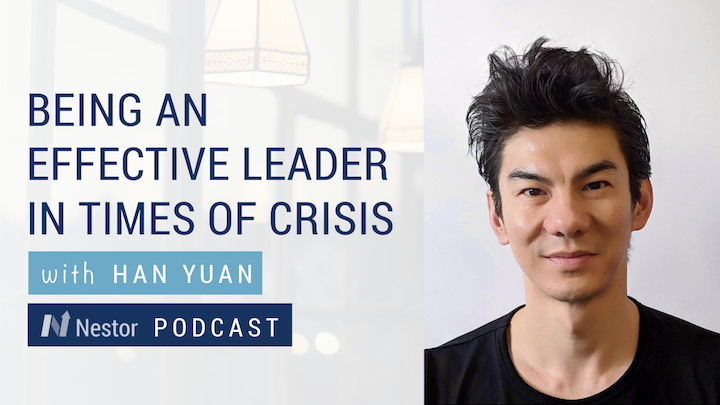Building a Strong Company Culture Could Be Your Startup’s Safety Belt
12 min read
Tim Brady is Partner at Y Combinator. In this podcast, he talks about the importance of building a strong and coherent culture early on and shares some actions that you can take today to help you create a solid foundation for your startup.
Tim Brady was co-founder of Imagine K12, an edtech accelerator that merged with YC in 2016. Prior to Imagine K12, Tim was CEO of QuestBridge, an educational startup company that helps bright low-income high school students gain admissions and financial aid to many of the nation’s best colleges.
Previously to that, he spent eight years at Yahoo! Inc. during which time he held several positions, the last of which was as the company’s Chief Product Officer. After the two founders, Tim was Yahoo’s first employee.
He played a key role in successfully managing all marketing, operation and business development to launch Yahoo! commercially, and to help make Yahoo! into one of the most recognized brands and successful businesses on the Internet. From writing the business plan that attracted the first venture capital financing to helping scale the business, he helped lead the company through multiple stages, challenges and opportunities. Prior to Yahoo!, Tim spent three years with Motorola in Tokyo. He holds an M.B.A. from Harvard University and a B.S. degree in electrical engineering from Stanford University.
Bogdan Apostol is the CEO of Nestor and you can connect with him on Twitter @bogapostol.
What does company culture mean and when is the right moment for Startup Founders to start building their company culture?
Tim: Culture has such a broad definition. When talking about it with regards to startups, I like to narrow that definition a little bit. There are two very important things a start-up can do in regards to culture:
1. Make sure what you’re working on is something you love
If you don’t love it, it’s hard to create a culture of people around you that somehow do. I would say that it’s near impossible. Make sure what you’re doing it’s something you’re passionate about and truly feel about it. This is probably one of the most important elements of creating a strong culture.
Make sure what you're working on is something you love. If you don't love it, it's hard to create a culture of people around you that somehow do.
— Tim Brady
2. Articulate the vision in a way that will make other people feel it as well
Make sure it’s concise and clear. When you’re creating a company, it’s way harder to bring a bunch of people around you and then get them and try to create a culture from that.
Instead, attract the right type of people who are already excited about what you’re doing, because it’s much easier to build a culture with those people as they are there for the right reasons. Don’t attract that kind of people that don’t necessarily have a connection with your vision and avoid building a culture on top of that.
Getting that kind of foundation right is probably the most critical thing for creating a strong culture.
Articulate your vision in a way that will make other people feel it as well. Make sure it's concise and clear.
— Tim Brady
My definition of culture, at least with startup culture, is answering this question: “What are the unwritten rules of behavior?”. Good management will lay out for you rules on how to behave (like performance and expectations), but that’s only a part of what you do. There are a lot of things that you do at work and you’re behaving in a way that isn’t laid out for you. So, the question is: How do you know how to behave in that part of your day? I would argue that culture is that thing.
Culture helps you know how to behave correctly. Just as a very simple example – do you show up for meetings on time? It’s that a culture of punctuality or not? If you know everyone’s on time, you don’t keep showing up late. So, you’ll show up with everyone else.
What are the unwritten rules of behavior? Culture helps you know how to behave correctly.
— Tim Brady
What are some of the first steps that a founder should take in order to build a strong culture?
In addition to making sure the vision is clearly communicated, the other thing you can do, as just the co-founders, is to begin to think and come up with a list of values that are important to you. There’s a bunch of kind of basic values, such as Honesty, Integrity, and others, and you can’t have them all. So make a shortlist of the most important ones to you when you think about what type of company you want to build.
Begin to think and come up with a list of values that are important to you.
— Tim Brady
Come up with that shortlist and agree upon it, then begin to think about how do we create interview questions to filter out people that don’t have these values.
A really critical thing is to hire the right people early on because the culture or a good percentage of the culture is set very early on. Startups usually go through several kind of typical phases:
- Ideation phase – when it’s just you and the co-founders
- Search for Product-Market Fit phase – when you hire a couple of people and you search for product-market fit
- Scale phase – when you find product-market fit and you focus on growth.
So before you scale you need to have a very firm foundation of corporate culture. I like to say those first 20 people are kind of the DNA of your culture. If you don’t get that right, just like your DNA, it’s nearly impossible to change it later on.
There’s a lot of thinking and planning that needs to go on early on to communicate, to define what those values are, and then find the right first set of people to bring in. Those first 20 people are often involved in hiring the next hundred. You got to get those people right and when they’ll be involved in the hiring process there’s a much higher likelihood that they’re going to be better at bringing in the right type of people to create a unified culture that’ll support your company.
Your first 20 people are kind of the DNA of your culture. If you don't get that right, it's nearly impossible to change it later on.
— Tim Brady
If we go past the initial steps, how do you maintain the culture and properly promote it?
When you’re at 200 people you can’t say Okay, we’re gonna create a culture of X because, by that time, it’s largely defined, even though you probably didn’t get a chance to define it. There are some things you can do to make it better, but to change it, certainly 180 degrees is nearly impossible.
Once you have written down your corporate values, think about interview questions that will help filter out people that don’t hold those values and make sure that they elicit the right response to bring those people in.
Another important thing to do when you’re growing fast is you have to constantly evaluate how you’re doing. Every month you and your co-founder should get together and talk about who you’ve brought in the company and whether you think it’s going well. So that’s critical because you can’t wait for when you’re growing fast you’re gonna have a million things on your plate. It doesn’t have to necessarily be this long formal thing, it can be a casual conversation every Friday evening for an hour to make sure you go through the list of people. You can do two things in this conversation:
- reevaluate how you’re interviewing and how you’re sourcing people – maybe the way you’re bringing people in is wrong in some way, or you’re having the wrong recruiter, or you’re looking in the wrong places, or you’re asking the wrong interviewing questions, or they’re not strict enough in terms of how they’re filtering out people
- you need to get comfortable with firing people that don’t fit right in, both for performance and/or culture – because early on mistakes you make get amplified at high scale
So it’s really critical that for those first hundred people that you stay on it because it’s hard to put the genie back in the bottle once you have a lot of people that don’t fit, or aren’t good in your company, involved in the hiring process.
Once you have written down your corporate values, think about interview questions that will help filter out people.
— Tim Brady
How can having a strong culture help your company when going fully remote?
A strong culture will make the transition to remote work easier because you already have these unspoken behaviors and the trust you build among your co-workers will allow you to make that change as easy as possible.
I think the question may be a little bit different for a company that is forced to make that transition. It’s easier to create a culture in person just because there are a lot of nonverbal cues that people pick up on that are important to behavior and that you don’t get in online meetings. So, if you’re in a remote culture that doesn’t mean it can’t be strong and supportive, just like the in-person culture, but it will require more time and you will need to be a lot more deliberate about it.
I think that’s gonna require a lot more face-to-face time on Zoom or Hangouts to check in with people, see how they’re doing, get feedback, and make sure communication is happening. In a person-to-person environment, communication is happening all the time and you don’t necessarily need to enforce it. In a remote setting, it’s very easy just to turn off your computer and you’re not talking to anybody. This is why you need to make sure that communication is happening and that’s probably the most important thing.
You have to be intentional in both circumstances, but it just requires more time for you as a manager to think about it, to communicate, and to check up on how things are going.
A strong culture will make the transition to remote work easier because you already have these unspoken behaviors and the trust you build among your co-workers.
— Tim Brady
Sometimes, as a startup founder, you need to take tough decisions. How could company culture make your decisions easier?
It’s not necessarily gonna change the decision you make in terms of what’s right for your company. Almost every strong culture has a pretty high degree of trust and so they will tend to trust their leaders longer than companies that don’t have a strong culture. If you need to make a change of some sort, the trust of the leader will help in these circumstances. I don’t think it has a big implication for new strategic directions. In terms of when you’re forced into new circumstances, the level of trust is much higher in strong cultures and it allows everyone to continue working well and efficiently, rather than spending a lot of time doing non-productive things which in bad cultures can happen. When people start worrying about things, gossip starts, they’re not sure how to behave and that takes a lot of energy. So, in turn, it takes more energy for someone to manage. The strength of communication and trust that is already part of a strong culture will tend to make it easier for everyone involved, have everyone remain on task, and the company headed in the right direction.
The level of trust is much higher in strong cultures and it allows everyone to continue working well and efficiently.
— Tim Brady
What is your opinion on the long term effects of COVID-19 for the startup and investment environment?
Entrepreneurship and the way I think about starting companies is that you’re going to solve a problem. It would seem to me that the circumstances we’re faced with right now have a lot of problems, and those problems aren’t going away, which says to me that we still need startups to help solve those problems. We can’t rely on big companies to necessarily act fast. In fact, in an environment like this that requires fast action, startups are better suited to move more quickly. The environment is probably going to become more dynamic, not less.
I will separate that from the funding question. My suspicion is we will go through anywhere from 6 to 12-18 months period where there’ll be a lot of indecision, because it won’t be clear where the world’s heading. Investors will be hesitant to place big bets without more clarity, but I think that’s a temporary thing. We will get clarity certainly when we get to a point where there’s a vaccine. The world will have changed by then and I think that the needs of the world will have changed even with a vaccine, and so the types of startups may change but the number and the activity will be the same if not greater.
In an environment like this that requires fast action, startups are better suited to move more quickly.
— Tim Brady










